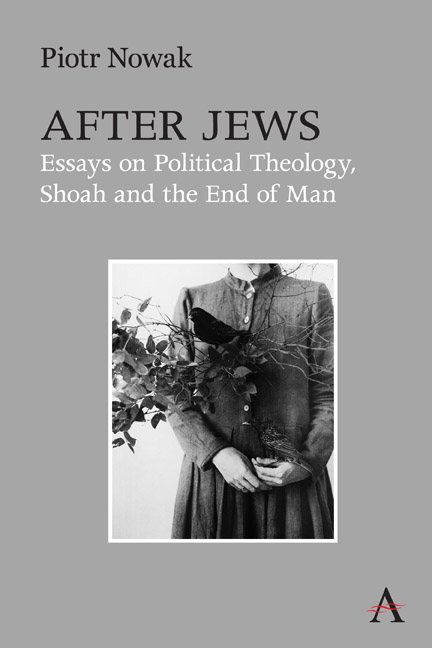Book contents
- Frontmatter
- Contents
- Preface
- Chapter 1 The Chosen Ones
- Chapter 2 The Secret of the Scapegoat
- Chapter 3 Making a Jew into a Christian
- Chapter 4 There Should Be Time No Longer
- Chapter 5 To Look Upon His Face and Yet Not Die
- Chapter 6 Ex oriente lux?
- Chapter 7 Pilloried by Necessity
- Chapter 8 German Rubble
- Chapter 9 Long Live!
- Chapter 10 The Living against the Dead
- Chapter 11 The Child of War
- Chapter 12 Plenty Coups and the End of the World
- Chapter 13 They Refugees
- Chapter 14 The Remainder of Christianity
- Bibliography
- Index of Persons
Chapter 13 - They Refugees
Published online by Cambridge University Press: 13 May 2022
- Frontmatter
- Contents
- Preface
- Chapter 1 The Chosen Ones
- Chapter 2 The Secret of the Scapegoat
- Chapter 3 Making a Jew into a Christian
- Chapter 4 There Should Be Time No Longer
- Chapter 5 To Look Upon His Face and Yet Not Die
- Chapter 6 Ex oriente lux?
- Chapter 7 Pilloried by Necessity
- Chapter 8 German Rubble
- Chapter 9 Long Live!
- Chapter 10 The Living against the Dead
- Chapter 11 The Child of War
- Chapter 12 Plenty Coups and the End of the World
- Chapter 13 They Refugees
- Chapter 14 The Remainder of Christianity
- Bibliography
- Index of Persons
Summary
In accordance with the law the death sentence was announced to Cincinnatus C. in a whisper.
I remember a conversation with Debord in which Guy said: “You know, I’m not a philosopher. I am a strategist.” The opposite is true for me. When I hear the question: “What should be done, what actions should be taken?” I reply: “I don't know. I am not a strategist, but a philosopher.” And then I hear: “It's just an excuse. It's all because you are a great pessimist.” And then I say that everything that supports understanding is not pessimistic. A being that understands the essence of things cannot be pessimistic. For me, pessimism means only one thing: not wanting to see.
Agamben knows how to formulate and average a lot of important things. And if at times he seems to wander off the subject, unnecessarily and unrestrainedly piling up successive thresholds of understanding, it is always the unclear language that is to blame. The thought itself is frightfully, glaringly clear. It is just a few motifs taken after Benjamin, Arendt, Schmitt or Foucault and developed, thought out to the end “as a warning.” If they carry a prophecy, what is it about? Man? His time? The world in which he is made to live? The near future? Or does it, rather, tell us more about what happened, what has already taken place? Finally, the most important question is: who is it that Agamben is addressing? Man? Or does he formulate his thought in the form of an epitaph after man, so to speak, over his grave? If so, who needs it? Who shall sing this prophecy and who will care?
Bios and zoe
For Foucault, the study of past events—Agamben observes—generally resembles the play of shadow that the present casts over the past; the shadow reaches back to the seventeenth century at the latest. The shadow that Agamben's work casts over the past, however, seems to be much longer. Agamben himself admits that he likes to create at dusk, when shadows dominate, when things are enveloped in darkness.
- Type
- Chapter
- Information
- After JewsEssays on Political Theology, Shoah and the End of Man, pp. 173 - 190Publisher: Anthem PressPrint publication year: 2022

